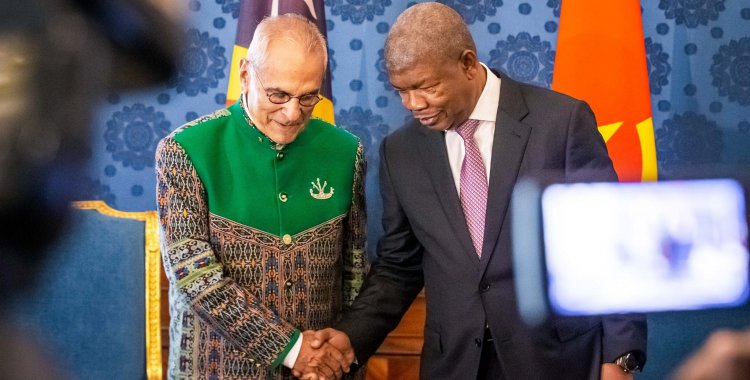According to José Ramos-Horta, Angola and Mozambique are great examples of reconciliation, and Angola has an extraordinary post-war experience, with the integration of the armed forces and the acceptance of the results by the defeated.
"The defeated accepted to join the country, there was no persecution and that's why I think the Angolan leaders should have received the Nobel Peace Prize for what they all did after the war here", said José Ramos-Horta, during a lecture given at the Venâncio Diplomatic Academy de Moura (ADVM), in Luanda.
To journalists, the Timorese head of state also highlighted Angola's role in the cause of Timor-Leste and the country's heroic struggle and progress in the last 20 years, highlighting reconciliation and the "hard and difficult struggle" for the country's equitable development.
"I would say that the author of this entire process was José Eduardo dos Santos [former President who died two years ago], he was the one who received the country following the death of Agostinho Neto [the country's first President] and faced the challenges of war and signed peace", he replied to Lusa.
He also highlighted the figure of the current president of the Republic, João Lourenço, and many other Angolan leaders as parts of the entire architecture of peace in Angola after the civil war and the consequent reconciliation with the National Union for the Total Independence of Angola (UNITA), the largest opposition party.
José Ramos-Horta, who is on the second day of his state visit to Angola, was the speaker at this lecture, which took place at ADVM under the motto: "Timor-Leste, the Region and the World".
According to the Timorese president, today his country, which has experienced 22 years of restoration after the detachment from Indonesia, is free thanks to Angola, Portuguese-speaking African countries and Portugal and Brazil, "who have always supported Timor's cause".
"Hence the importance of diplomacy and multilateralism", he stressed, adding that the Southeast Asian country today lives in total peace, tranquility and without any ethnic or religious tension.
"All citizens enjoy the same rights, we do not have organized crime, drug trafficking, cartels, in fact, we do not have organized crime because by our nature we are not organized and criminals do not have an organization either", he noted, drawing smiles from the audience, composed mainly of international relations students.
Ramos-Horta admitted that Timor-Leste "has failed" in the fight against extreme poverty, and hoped that in the next four years the country's Government will definitively resolve "ignoble" poverty, infant mortality and malnutrition.
Ramos-Horta also highlighted the role of the Indonesian army in accepting the referendum in favor of democracy in the neighboring country and, therefore, in the restoration process of Timor-Leste.
"Our first responsibility is to maintain peace and stability in our country, create better prosperity for the people and contribute to dialogue at the regional level," he noted, advocating the need for "urgent dialogue" between all parties for peace in Myanmar.
The president of Timor-Leste also gave "a 10" to his visit to Angola and the one he recently made to Mozambique, countries with which relations "are at the top".







